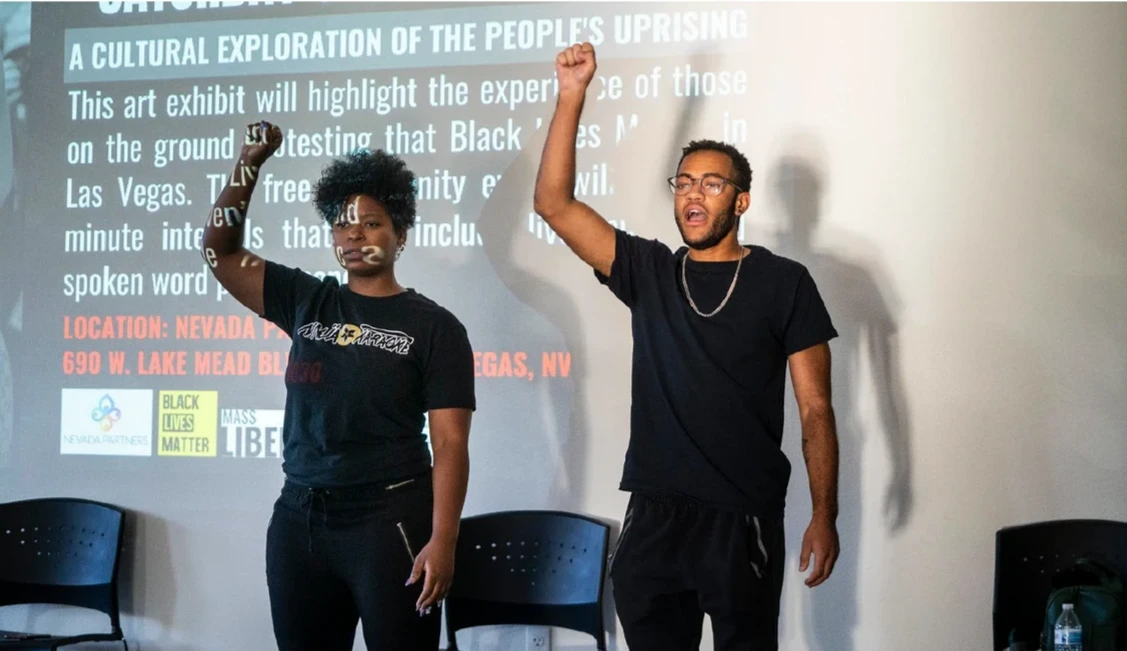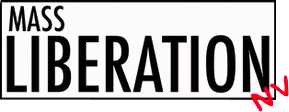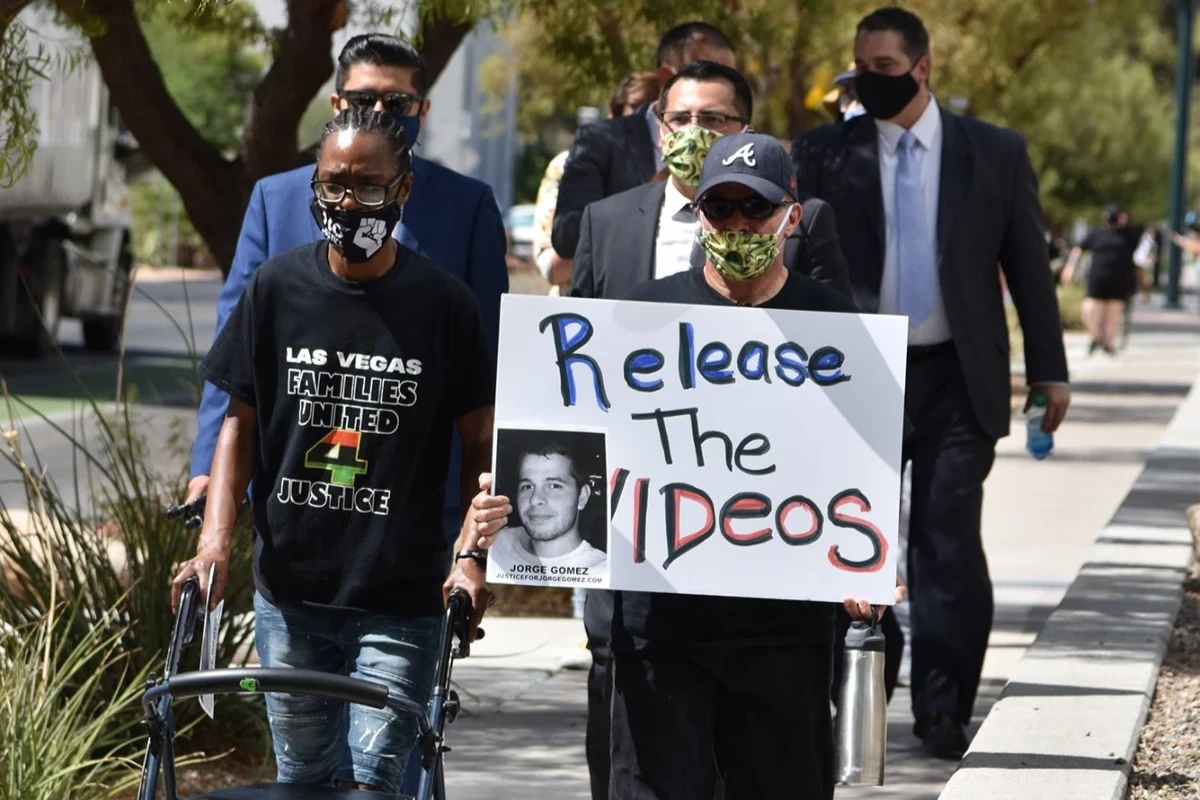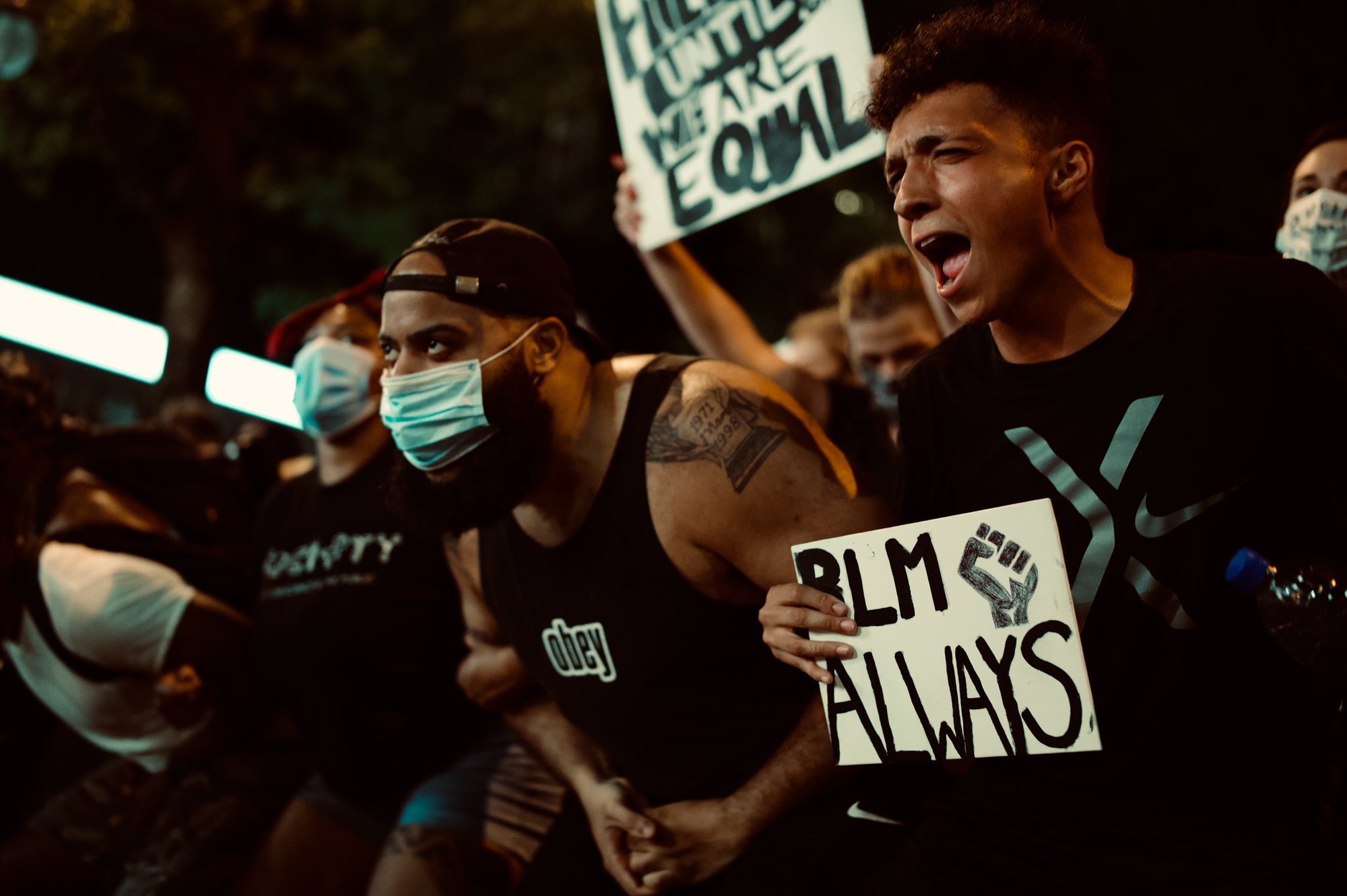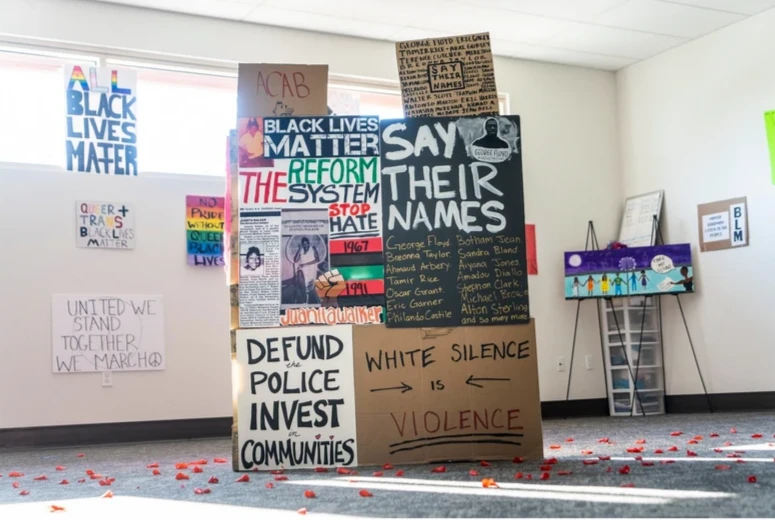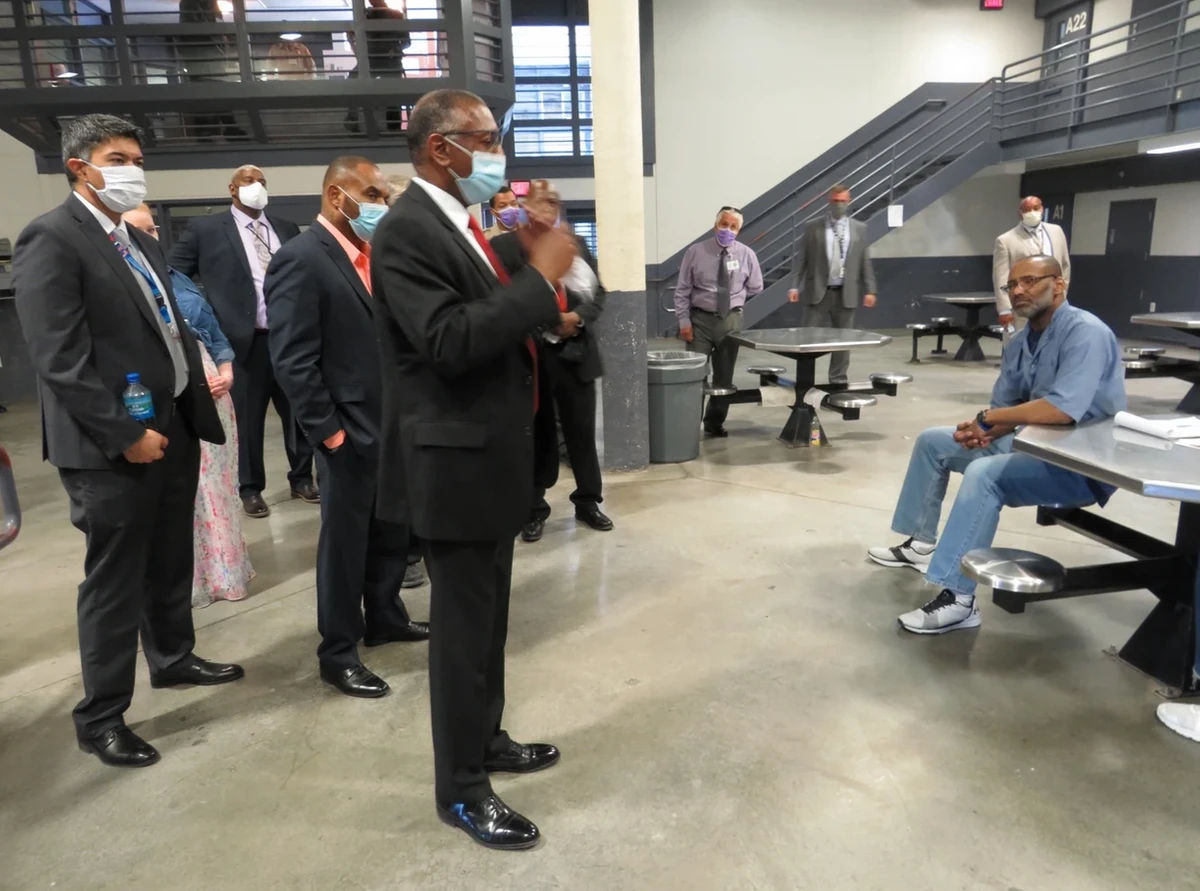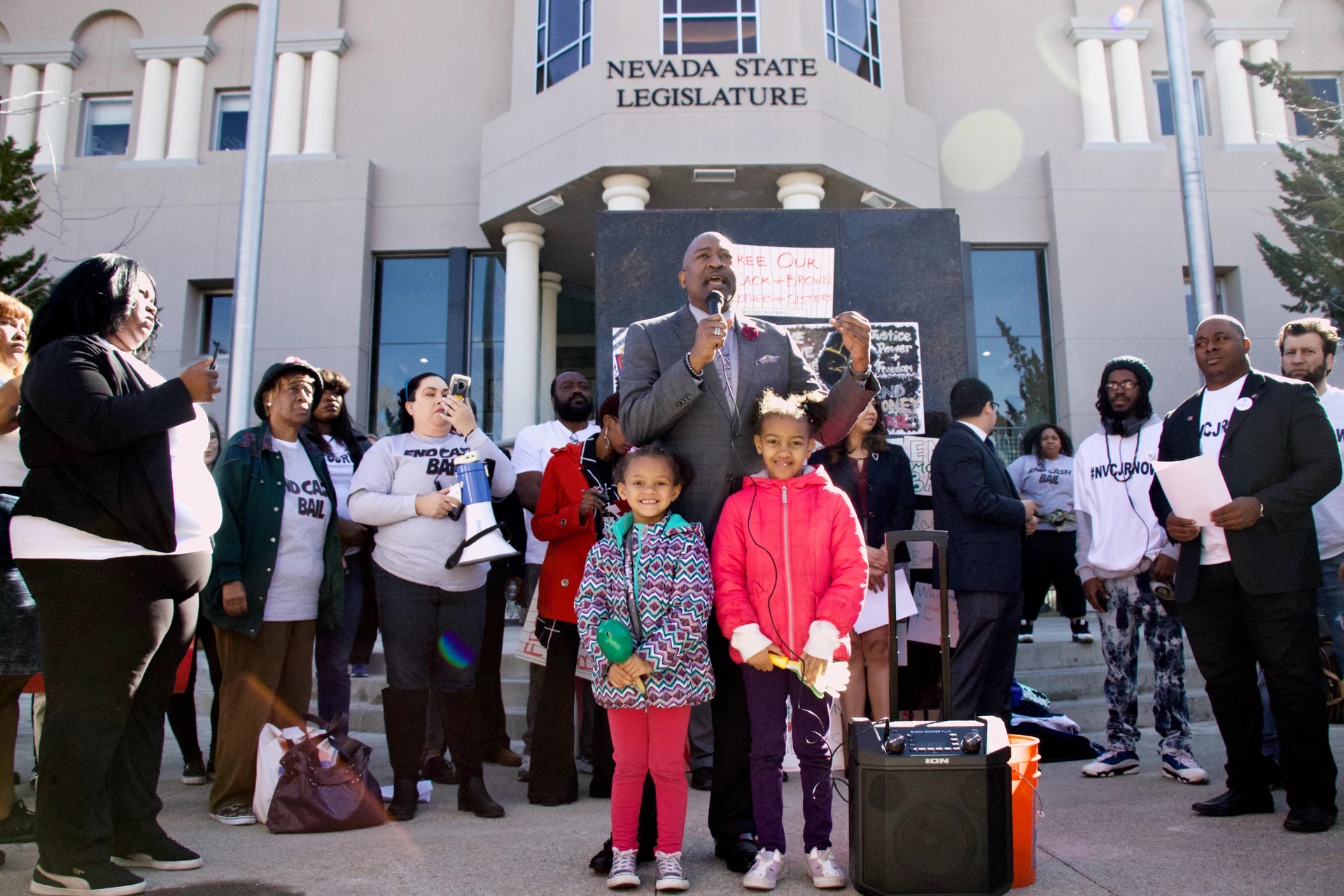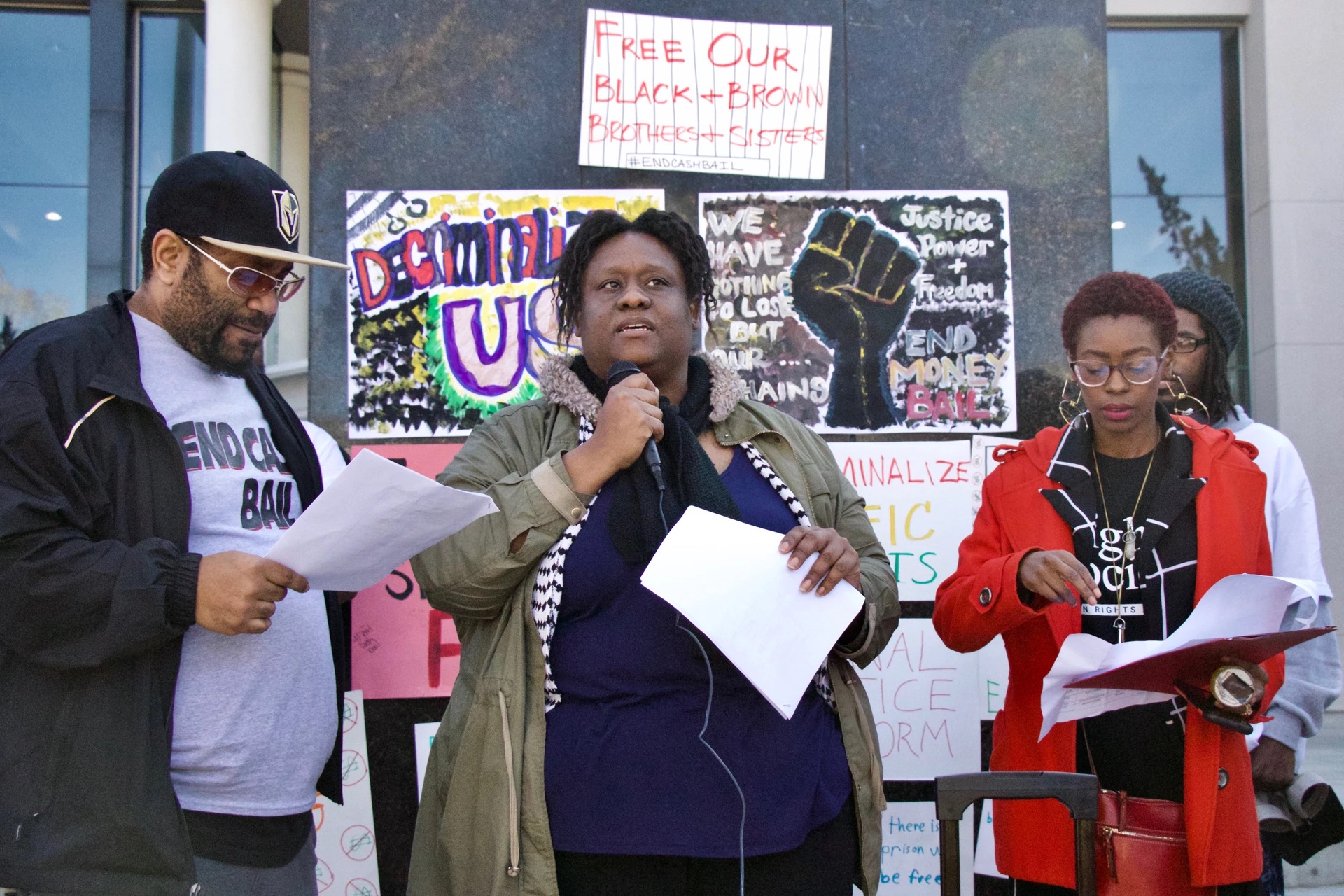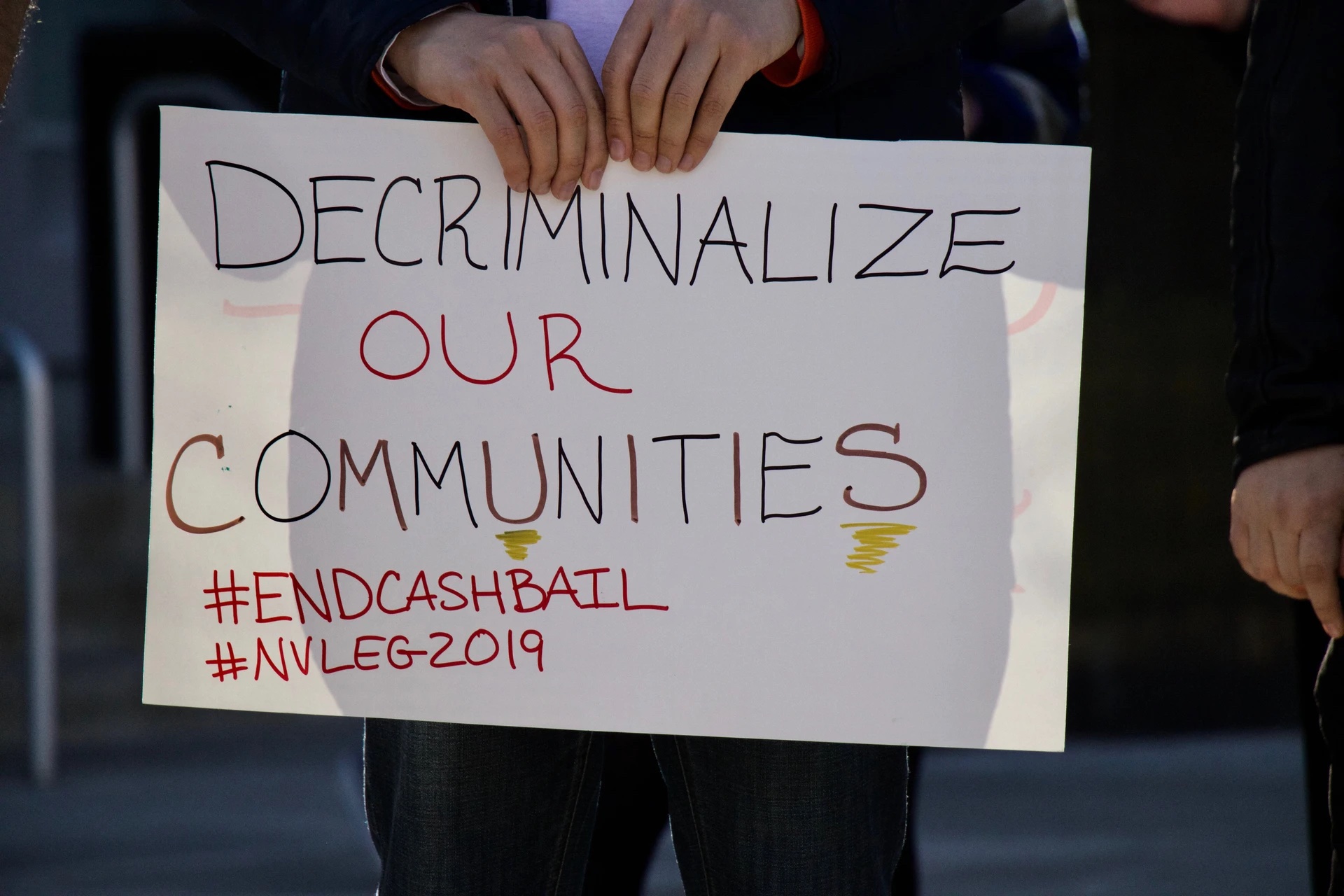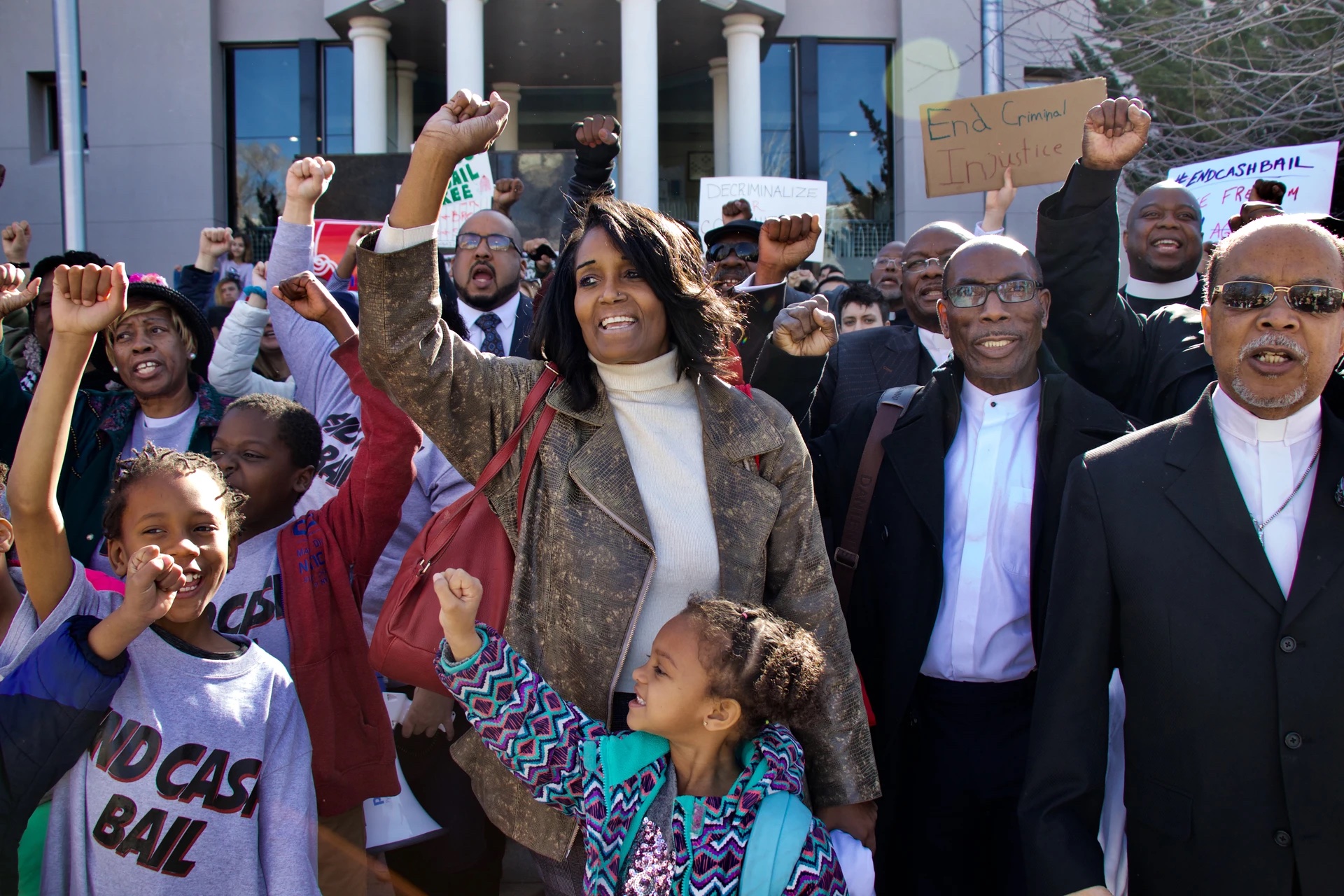Abolition
We are part of a growing movement that aims to eliminate the culture of punishment and the criminal legal system as we know it. This means we must create community-based solutions to harm (i.e. forms of transformative justice). To get there, it is imperative that we build enough power to change culture and to change public policy to reflect our values instead of violent and punitive responses, individualism, patriarchy and capitalism that currently rule the day. As abolitionists, our primary focus is to shrink the system and to stop using it as our go-to solution for conflicts and problems in our homes, streets and communities. As we do this work to dismantle the system as we know it, we concurrently fight for the tools and resources (robust education systems in every community, a full-employment economy, decent and affordable housing, etc) that our communities need to thrive.
